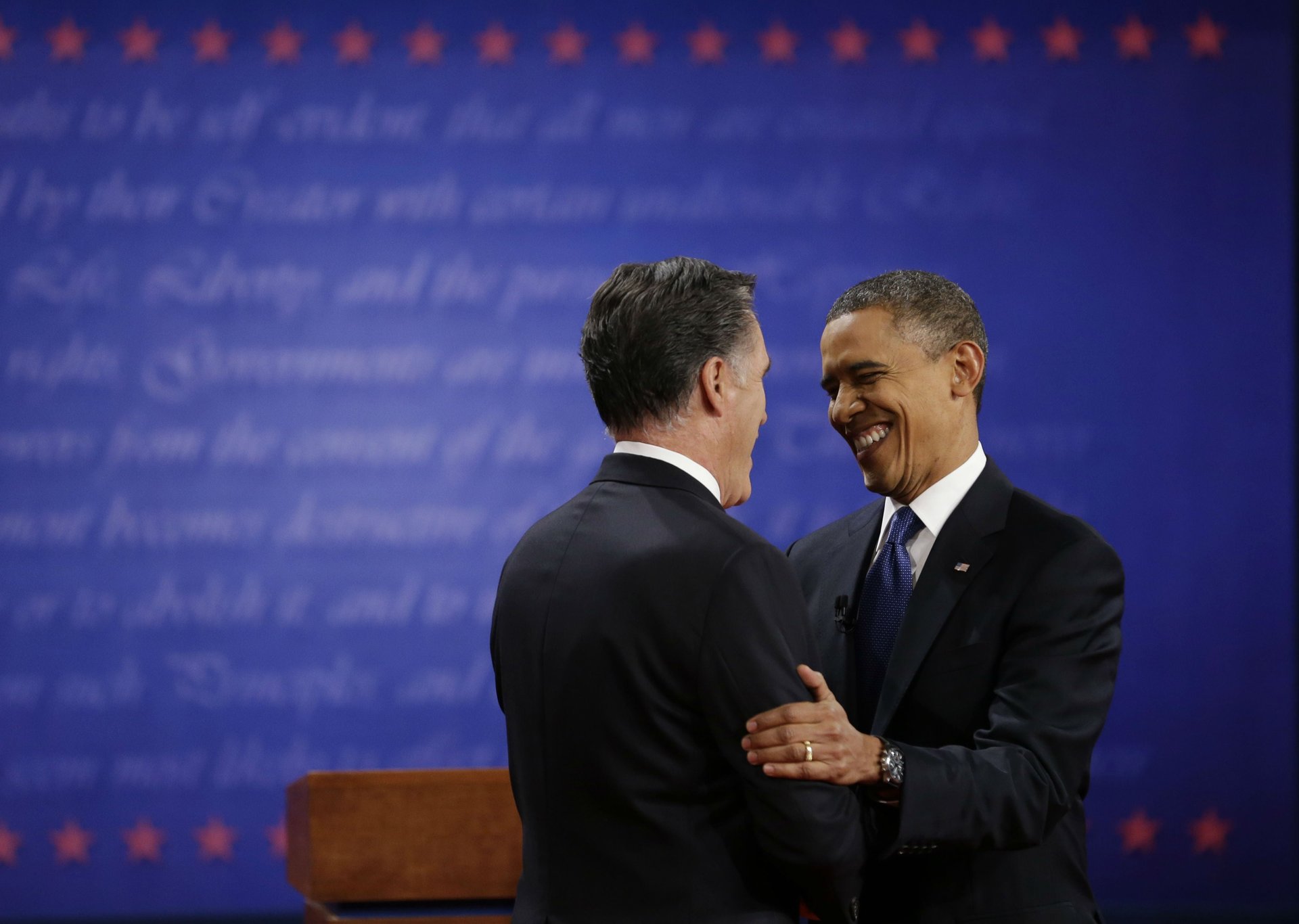What Obama and Romney did not say about the geopolitics of their energy plans
In the opening moments of their Oct. 4 debate–before there was conflict on taxes, health care, and deficits–the US president and his Republican opponent squared off on energy. That included their respective opinions on expanded oil drilling, strategically driven industrial policy, and solar power (including some fibs). We’ll probably have to wait until Oct. 22 and the third debate on foreign policy to hear the candidates explain how their energy policies might impact geopolitics and strategy. But we can crack open that can ourselves.

In the opening moments of their Oct. 4 debate–before there was conflict on taxes, health care, and deficits–the US president and his Republican opponent squared off on energy. That included their respective opinions on expanded oil drilling, strategically driven industrial policy, and solar power (including some fibs). We’ll probably have to wait until Oct. 22 and the third debate on foreign policy to hear the candidates explain how their energy policies might impact geopolitics and strategy. But we can crack open that can ourselves.
GOP nominee Mitt Romney is the easier to dissect. This is because of his unconditional embrace of oil, natural gas, and coal. If Romney wins and the stars align (the public and Congress embrace his approach, industry follows through with investment and technological advances, and there is sufficient new skilled labor), we would see a no-holds-barred version of the fashionable scenario of fossil fuel abundance.
We have discussed the chain-reaction of a global flood of new oil and gas supplies: a comparatively weak OPEC, a struggling Russia, a revitalized US, a less-menacing China, and—unless there is serious mitigation—quite possibly a surge in greenhouse gases.
The reason for OPEC’s disadvantage is that it will no longer be a single center of gravity: it currently satisfies 34% of the world’s daily consumption, or 31 million barrels of the 89 million consumed each day. North America would be a competing locus, producing 25 million barrels a day by the early 2020s. This flood of oil, along with expected new volumes from Africa and South America, would diminish the chance of a conflict over resources with China. With its cheap natural gas, the US could experience a new industrial boom. As for Russia, it along with other single-commodity economies could face economic trouble if a global fossil fuel surplus drives down global oil prices.
The industry role in the Romney scenario is crucial. The world’s oil and gas companies are already working flat out—they have projects stacked up years in advance. They are severely crimped by a shortage of skilled geologists, engineers and chemists. And in some cases, technology is not yet sufficiently advanced to safely and effectively produce known oil or gas reserves. It could be that, in order to capitalize on liberalized drilling regulations, companies will postpone work on other, less-economical projects, hence possibly muting the impact on total production.
The geopolitics of President Barack Obama’s energy vision would also include a less powerful OPEC. This is because OPEC seems likely to face stiff competition from oil projects already under way in the US and elsewhere, regardless of whether there’s a super-charged drilling program such as Romney envisions. The rest of the impact is sketchy and depends on whether you embrace fossil fuel bulls or the skeptics.
The fruits of Obama’s embrace of green technologies—even if they are successful—would happen only decades in the future. But one can see how, if a meaningful advance is made in battery technology, for example, and it enables a far more robust electric-car industry, US and possibly global oil demand could plummet. That would have even more pronounced negative impact on OPEC and Russia, while reducing the emission of heat-trapping gases into the atmosphere.